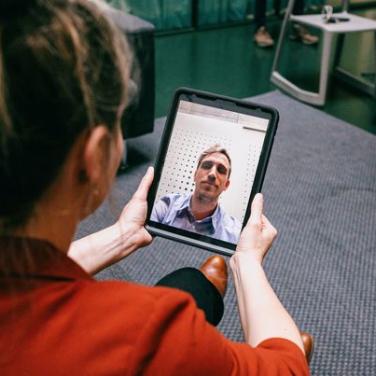The current study aimed to document the uptake of online consultations and explore if specific characteristics of mental health professionals across and beyond Europe could predict this.
An international survey was designed to assess mental health professionals' (initial) experiences with online consultations at the onset of the pandemic: their willingness to make use of them and their prior and current experiences, alongside several personal characteristics. Logistic mixed-effects models were used to identify predictors of the use of online consultations, personal experience with this modality, and the sense of telepresence.
A total of 9115 healthcare professionals from 73 countries participated of which about two-thirds used online consultations during the initial COVID-19 outbreak. The current study identifies multiple determinants relating to the use and experience of online consultations, including the professionals' age, experience with the technology before the outbreak, the professional context, and training.
Despite strong evidence supporting the relevance of training in digital mental health, this is clearly still lacking. Nevertheless, the COVID-19 pandemic presented a first, and potentially transformative, experience with online consultations for many healthcare professionals. The insights from this study can help support professionals and, importantly, (mental) healthcare organisations to create optimal circumstances for selective and high-quality continued use of online consultations.
Want to read more?
You can find the reference and the link for this open access publication below.
Van Daele, T., Mathiasen, K., Carlbring, P. Bernaerts, S., Brugnera, A., Compare, A., Duque, A., Eimontas, J., Gosar, D., Haddouk, L. Karekla, M., Larsen, P., Lo Coco, G., Nordgreen, T., Salgado, J., Schwerdtfeger, A. R., Van Assche, E., Willems, S., & De Witte, N. A. J. (2022). Online consultations in mental healthcare: Modelling determinants of use and experience based on an international survey study at the onset of the pandemic. Internet Interventions, 30, 100571.

